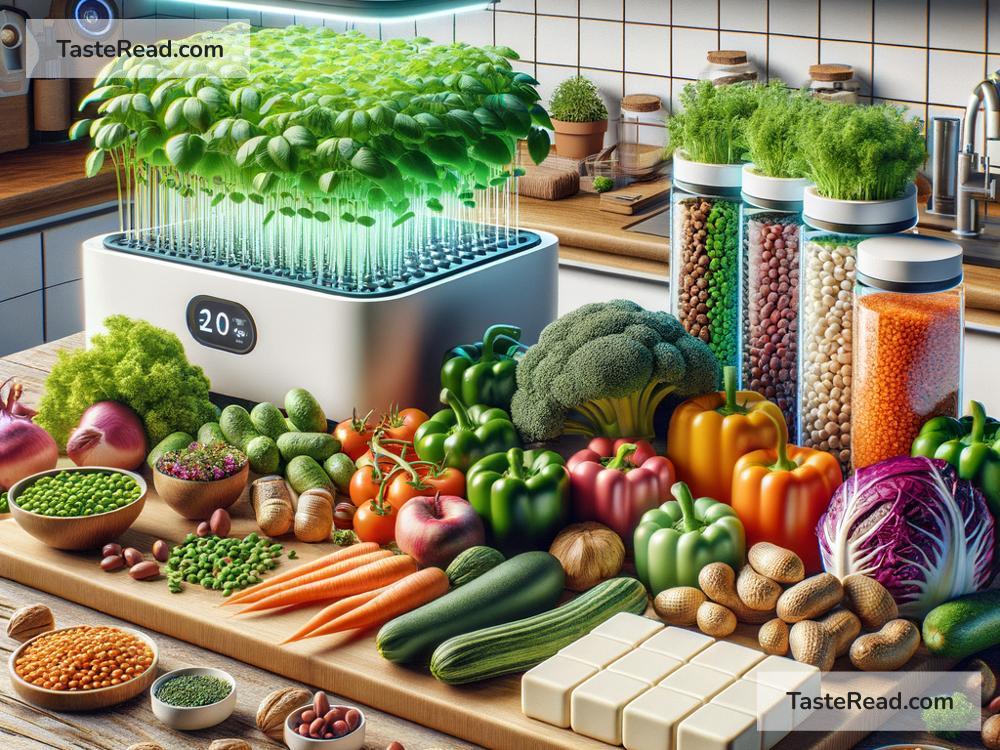The Future of Plant-Based Nutrition: A Bright Path Ahead
Plant-based nutrition is a growing trend that is changing how people think about food. More and more people are choosing to eat less meat and dairy, and instead, focus on fruits, vegetables, grains, legumes, seeds, and nuts. This shift isn’t just about preferences—it’s about health, the environment, and creating a sustainable future. So, what does the future of plant-based eating look like? Let’s explore.
Why People Are Turning to Plant-Based Nutrition
Plant-based eating has grown popular for several reasons. First, many studies show that plant-based diets can help prevent chronic health problems like heart disease, diabetes, and obesity. Plants are full of nutrients like fiber, vitamins, and antioxidants, which are great for your body. Eating fewer animal products can also lower your cholesterol and reduce inflammation.
Second, there’s increasing awareness about the environmental impact of animal farming. Raising animals for food takes up a lot of land, uses tons of water, and produces more greenhouse gases than plant farming. By eating more plants, people reduce their carbon footprint and help protect the planet for future generations.
Lastly, there’s a growing interest in animal welfare. Many people are choosing plant-based diets because they want to reduce harm to animals or avoid supporting factory farming practices.
The Rise of Plant-Based Products
The future of plant-based nutrition is exciting, partly because food companies are creating better plant-based options than ever before. Years ago, if you wanted to eat plant-based, the options were limited—you had to rely mostly on tofu, lentils, or plain vegetables. Today, the shelves are full of innovative products that look and taste like meat, cheese, milk, and eggs, but are made entirely from plants.
For example, plant-based burgers that sizzle like beef, almond milk that’s creamy like cow’s milk, and vegan cheese that melts just right are now widely available. These products make it easier for people to transition to plant-based eating because they don’t require major changes in diet or cooking styles.
As technology improves, these products are becoming tastier, healthier, and more affordable. Scientists are even using advanced techniques to grow lab-based meat alternatives or develop protein from microscopic plants like algae. In the future, plant-based foods might not just mimic animal products but become entirely new categories of delicious and nutritious foods.
The Role of Technology in Plant-Based Nutrition
Technology is driving change in plant-based nutrition. Food scientists are working hard to develop new methods to create plant-based proteins that are healthy, sustainable, and affordable. For example, companies are using pea protein and soy protein as the base for many products because they’re rich in nutrients, easy to grow, and versatile.
Beyond plant-based protein, researchers are exploring ways to make food production greener. This includes using vertical farming, which grows plants indoors using less space and water, or creating “smart farming” systems that use sensors and artificial intelligence to maximize crop yield. Innovations like this make plant-based foods even more sustainable.
Another area of growth is precision fermentation—a process where microbes produce specific ingredients, such as plant-based dairy proteins, without needing animals. This could lead to better vegan cheeses, yogurts, or other dairy alternatives that closely resemble the real thing.
The Health Benefits of Plant-Based Nutrition
As more research focuses on plant-based nutrition, we’re learning more about its health benefits. Studies suggest that people who follow plant-based diets often have lower rates of heart disease, high blood pressure, and type 2 diabetes. They also tend to have healthier weights compared to those who eat a lot of meat.
One reason is that plant-based foods are typically lower in saturated fat and higher in fiber. Fiber is great for your digestion and helps regulate blood sugar levels. Plants are also packed with antioxidants that protect your cells from damage and reduce the risk of certain cancers.
The future of plant-based nutrition may involve more personalized diets. Nutritionists might use data about your genes or lifestyle to recommend specific plants or nutrients tailored to your body. This could make healthy eating even more effective, helping individuals reach their wellness goals faster.
The Challenges Ahead
While the future of plant-based nutrition is promising, there are challenges to overcome. One issue is cost—some plant-based products are still expensive compared to traditional meat and dairy. As demand grows and production scales up, prices will likely drop, but it may take time.
Another challenge is education. Many people still believe that plant-based diets lack nutrients like protein, calcium, or iron. In reality, there are plenty of plant-based sources for these nutrients, such as beans, tofu, nuts, seeds, leafy greens, and fortified foods. Increasing awareness and teaching people how to eat balanced plant-based meals will be crucial.
Additionally, cultural and social factors play a role. In some parts of the world, meat is a central part of traditional dishes and celebrations. Encouraging plant-based eating without dismissing cultural customs will be important as the movement grows globally.
A Global Movement
The future of plant-based nutrition is bright. Experts predict that plant-based eating will become even more mainstream in the years to come. Governments and organizations are encouraging people to eat more plants through campaigns and policies to support a healthier planet.
Plant-based nutrition isn’t just for vegans or vegetarians anymore—many people are adopting “flexitarian” diets, eating plant-based most of the time while occasionally consuming meat or dairy. This shift is helping the movement grow quickly while being inclusive of different lifestyles.
Final Thoughts
The future of plant-based nutrition is full of possibility. With advancements in science, growing awareness about health and the environment, and delicious new food products, it’s easier than ever to embrace plant-based eating. Whether it’s for your health, the planet, or ethical reasons, plant-based diets are paving the way for a sustainable, nutritious future.


